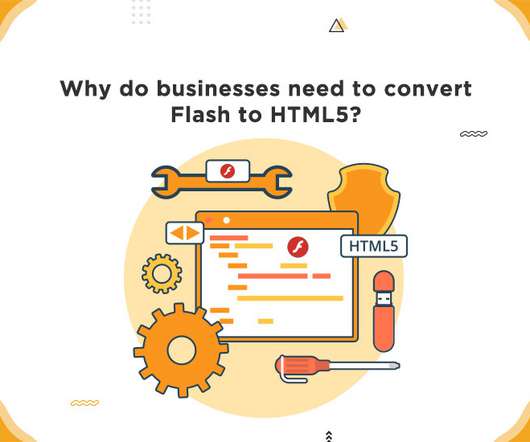Why Flash to HTML5 Conversion is Essential for Your Flash-based Course’s Survival
Brilliant Teams
OCTOBER 12, 2023
Why Flash to HTML5 Conversion is Essential for Your Flash-based Course's Survival The world of online education has undergone a seismic shift in recent years. One such transformation is the shift from Flash to HTML5 for course content delivery. Are you looking for eLearning Solutions?























Let's personalize your content